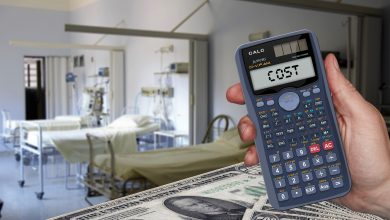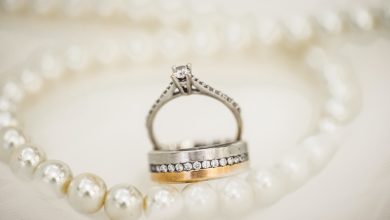Renters Insurance: What It Is and Why You Need It

Do you even know how much stuff you have in your apartment? Most people focus on the big things, like laptops and sofas, but there are a ton of little things as well. Often, you couldn’t afford to replace it all if your apartment was destroyed in a fire or something else happened. Plus, what are you going to do if someone comes into your home and steals your jewelry or clothing? You need renters insurance.
What Is Renters Insurance?
Renters insurance is there to protect your possessions if they get damaged, stolen, or vandalized while you are renting from that location. In a sense, it is there to help you through unpredictable problems, including explosions, electrical surges, and fires. Without this insurance, you could go broke trying to replace everything you lost because of a burglary or fire.
Most people incorrectly believe that the landlord’s insurance covers their possessions. Landlords must have coverage for the property, but it only includes the building in which you live. It doesn’t cover losses, such as your sports equipment, furniture, electronics, jewelry, and collectibles, regardless of who is at fault.
It is also a misconception to think that your possessions are covered if your roommate has renters insurance. In fact, their items are covered, but yours are not. It is true that some insurance companies can offer a single policy for roommates. This might seem like the easiest option to consider, but you could end up in a bad situation. What happens if your roommate makes several claims, which causes your rates to go up? As you can see, it is often best to have a policy of your own.
How Much Does It Cost?
Many people don’t want to shell out money for something they hope they never have to use. Still, renter’s insurance is quite cheap. On average, it is just $17 a month. Even if you are trying to save money for a down payment on a house or paying off student loans, you can easily save 50 cents a day to protect up to $50,000 worth of stuff.

What’s Covered with Renters Insurance?
There are a variety of policies available, and insurance companies are likely to vary, but most basic options cover these things:
Personal Property
This includes things like computers, bicycles, kayaks, and more. Whatever you own that is stored in the home is covered by renters insurance. Of course, it works similarly to other types of insurance coverage. Therefore, you must pay a portion of the damage or lost items before coverage starts. It’s called a deductible, and all policies are going to have it.
Let’s say that you have a policy with a $1,000 deductible. You lose $3,000 worth of property in a fire, so you pay $1,000, and the insurer covers the remaining $2,000.
Generally, most policies have a cap on the amount of coverage you can get. This is often around $20,000. Therefore, it’s a good idea to ask your insurance agent how much coverage you need and why.
Liability Coverage
Renters insurance is there to cover accidents that might happen while in your apartment. For example, if someone falls on a wet floor and breaks their nose or your dog bites a guest, renters insurance can help to cover their medical bills.
Liability can also protect you if you’re clumsy and damage things somehow. For example, if you leave the water running in the plugged sink and flood the apartment, your renter’s insurance is going to pay for any damages you cause to the neighbors. Plus, it is going to cover any property you lost in the bargain.
Living Expenses
What happens if a fire destroys the apartment, and you don’t have a safe place to live? You’re not sure where you’re going or how you’re going to cover food. Renters insurance can help to pay for lodging, food, and clothing until you secure another apartment.
Theft
Of course, renters insurance is going to cover theft that occurs in the apartment, no matter what is stolen. However, you may not know that it covers you if things are stolen from your vehicle. It can also ensure that your stuff is protected at the airport, while traveling, and anywhere else. Regardless of where you take your things, they are protected.
Storage Units
Sometimes, you may need to use a self-storage unit to keep some of your items, such as during a deep clean or potential move. If the unit is separate from the apartment, renters insurance can cover part of it. However, it’s not going to cover the full amount, so make sure you talk to your insurance agent to find out coverage limits. Many times, you get 10% of the total contents in coverage. Therefore, if you had $50,000 worth of items inside the unit, you could get $5,000 back if something happened to it.
Food Spoilage
Shockingly, most people don’t think that food spoiling because of a faulty refrigerator is covered with renters insurance, but it is. If an electrical surge disables the fridge and spoils your food, you are going to get a check to cover the groceries that were lost.
Water Damage Coverage
When you ask what renters insurance is you quickly realize that there are many components, so it isn’t easy to explain in a few short sentences because it covers so much. Therefore, you may wonder about water damage coverage.
This is where it gets even trickier, and we’re going to need to break it down into three parts.
Floods
Unfortunately, renters insurance doesn’t cover flooding from an outside water source, such as a river or creek. If you think you may have an issue with flooding, consider a flood policy addendum.
Structural Problems
What happens if your toilet overflows because of a backup in the line or you’ve got leaky pipes? When you are not at fault for these problems, the landlord’s insurance covers structural issues. However, if the leaky pipe or overflowing toilet caused damage to your television or couch, renters insurance is to the rescue and is going to cover those damages.
Flooding and Electrical Damage
So the landlord’s insurance covers the structure, of which electrical outlets are a part. Therefore, what happens if you flood the apartment accidentally and ruin the electrical outlets? Your renter’s insurance kicks in and pays the landlord for the damage to the system because you are at fault here.

How It Works
Now that you know what is covered by renters insurance, it can be helpful to understand how it works. Often, personal property coverage doesn’t protect everything. Many policies go by modern pricing. For example, if you have $3,000 worth of clothes, you are going to get $3,000 (minus the deductible) to buy more clothes. If you spend frivolously, you still have the same amount. You could go to a thrift store and buy the place out, or you could choose to buy name-brand items and spend $300 for a pair of jeans.
Remember, too, that your deductible is the amount you cover. Some insurance companies are going to cut you a check for the amount of loss minus the deductible, but others are going to want proof that you’ve replaced what you can out of pocket.
Are You Required to Have Renters Insurance?
No, states do not require you to have renters insurance to rent a property. This is unlike car insurance, which is mandatory. However, many landlords make renters insurance a part of the lease. Therefore, if your landlord requires it, you must have it before the contract is complete.
Determining How Much Coverage You Need
In most cases, you need to have liability coverage of at least $100,000. If you live in an area prone to flooding, flood coverage should be included, too. Contents coverage (for self-storage units) is going to depend on how much you have stored there at any given time, so it is different for each person.
Many people find it easier to ask themselves this question: If I lost everything right now, how much money am I going to need to buy it all back? Even with that question in mind, you may still not be sure of how much to get. These steps can help:
Inventory Your Stuff
Sit down one night (or multiple nights) and make a list of everything you own. This includes silverware, wall shelving units, socks, undergarments, toasters, mattresses, and all the rest. If it is yours, then add it to the inventory. It might help to take photographs of bigger or expensive items. That way, if there is ever a claim and it’s disputed, you have the necessary evidence to prove that you owned it.
Estimate Value
Once you’ve got a good, solid list of your stuff, determine how much it is all worth. Yes, your socks aren’t that expensive, but that’s not the point right now. Add it to the calculations because you might be surprised at how fast things add up.
Get Quotes
Now that you know the value of all of your items, you know how much coverage you need. Let’s say that your things add up to $35,025. You may want to keep the amount at $35,000 or may want to bump it up a little. You can always talk to your insurance agent about your options. If you work with an independent agent, they are going to help you find the right coverage and policy for your needs.



